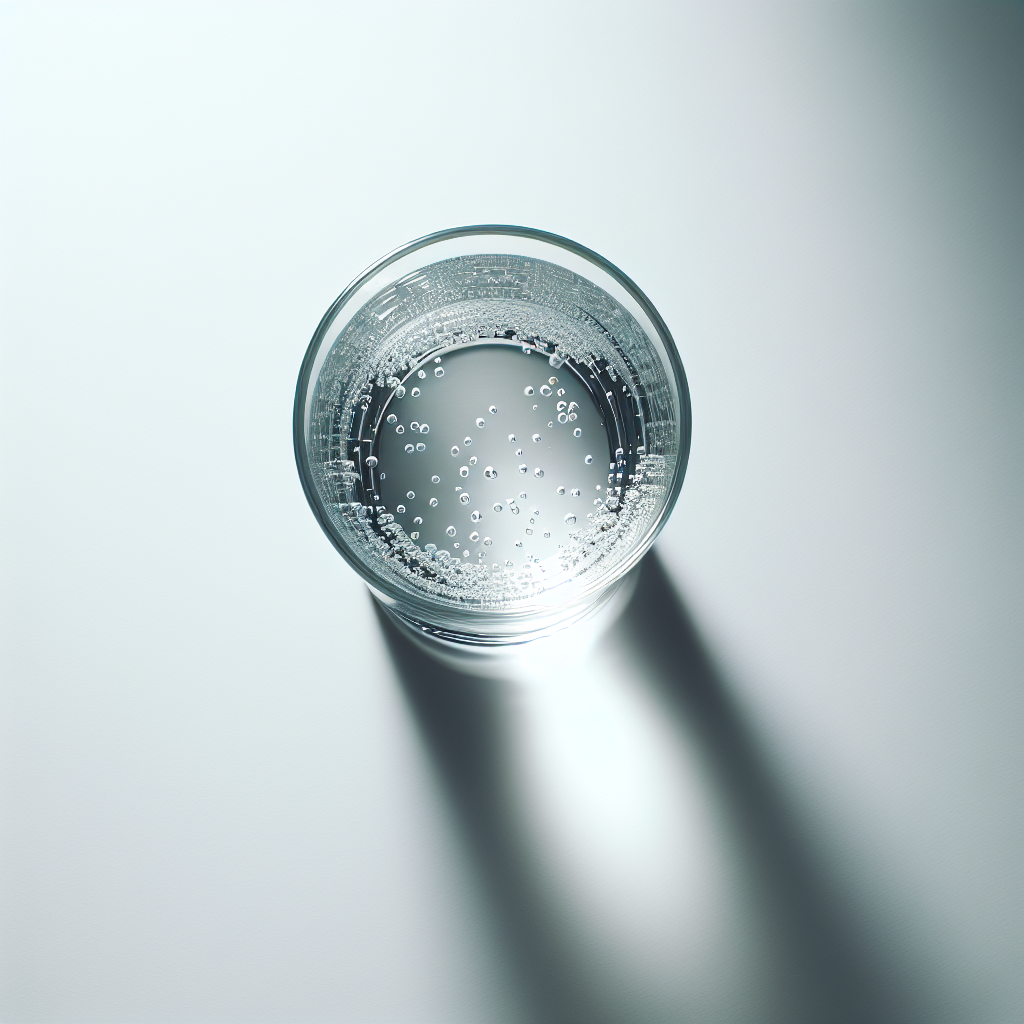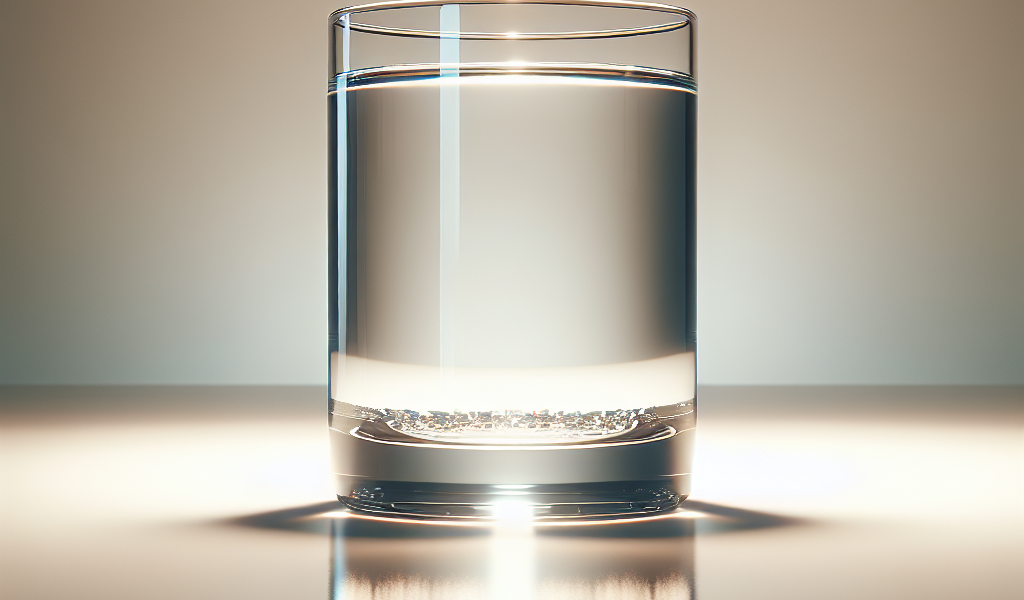Does Water Have Calories
In this comprehensive analysis of caloric intake and expenditure, we will navigate through an extensive range of inquiries. From determining the caloric content in everyday fruits such as bananas, apples, and avocados to unveiling the number of calories found in common items, including eggs, chicken breast, and watermelon, this article provides you with the crucial information you need. It goes beyond to address the essence of calories themselves, ways to lose them, and the amount you burn or require on a daily basis. Notably, the article also explores the seemingly innocent subject: does water, the most basic and essential life-sustaining substance, contribute to caloric intake? So, embark on a knowledge-packed journey into the world of calories—for weight loss, health maintenance, or general curiosity, this article has got you covered.

Understanding Calories
What are calories?
Calories are the unit of measurement for energy. They define the amount of energy that the food or drink you consume can provide for your body. This energy helps your body to function every day – from physical activities like walking, running, and exercising, to automatic processes like warming your body, maintaining your heartbeat, and other internal activities.
How many calories do you need?
The number of calories you need depends on several factors; these include your age, sex, body size, and physical activity level. On average, adult men can require between 2,000 to 3,000 calories per day, while adult women may need between 1,600 to 2,400 calories. These numbers can vary considerably depending on your specific lifestyle and health goals.
How many calories should you burn a day?
The average person typically burns approximately 1,600 to 2,500 calories each day, but again, this can also vary depending on your age, sex, body size, and physical activity level. If you are hoping to lose weight, it is generally advisable to try and burn more calories than you consume.
Calories in Common Foods
How many calories in a pound?
One pound of fat is equivalent to about 3,500 calories. This is why a weight loss plan often involves creating a calorie deficit of 500 to 1,000 calories per day, which will generally lead to a weight loss of about 1 to 2 pounds per week.
How many calories in a banana?
A medium-sized banana typically contains about 105 calories.
How many calories are in an apple?
A medium apple has about 95 calories.
How many calories in an egg?
A large egg contains about 70 calories.
How many calories in an avocado?
A medium avocado holds between 200 and 300 calories.
How many calories in chicken breast?
A 3 ounce serving of cooked chicken breast has approximately 128 calories.
How many calories in an orange?
A medium-sized orange contains about 80 calories.
How many calories in strawberries?
One cup of diced strawberries, has about 53 calories.
How many calories in a shot of vodka?
A standard single shot of vodka has around 97 calories.
How many calories are in a big mac?
A Big Mac from McDonald’s contains approximately 540 calories.
How many calories in a cucumber?
A medium-sized cucumber has about 45 calories.
How many calories in a boiled egg?
A boiled large egg has around 78 calories.
How many calories in a sweet potato?
A medium-sized baked sweet potato has about 103 calories.
How many calories in a cup of rice?
A cup of cooked, unsweetened white rice has approximately 204 calories.
How many calories in a mango?
A medium-sized mango contains roughly 150 calories.
How many calories in blueberries?
One cup of fresh blueberries totals approximately 84 calories.

Calories and Exercise
What exercise burns the most calories?
Cardio-based exercises such as running, cycling, and swimming can burn a significant number of calories. The precise number of burned calories can vary hugely based on the intensity and duration of the exercise, as well as your personal body weight.
How many calories do you burn walking a mile?
Walking a mile can burn between 65 to 100 calories, depending on your weight and the pace of walking.
How many calories do you burn in a day?
The number of calories you burn in a day depends on your Basal Metabolic Rate (BMR) – the number of calories your body needs to maintain basic physiological functions, such as breathing and digestion – and the number of calories you burn through physical activity.
Calorie Intake for Weight Management
How many calories should I eat a day?
The number of calories you should consume every day varies based on age, sex, height, weight, and physical activity levels. On average, adult men may need 2,000-3,000 calories and adult women 1,600-2,400 calories daily.
How many calories should I eat to lose weight?
The number of calories you should consume to lose weight depends on your current calorie intake and your weight loss goals. However, to lose one pound per week, you would need to create a calorie deficit of around 500 to 1000 calories per day.

Counting Calories for Weight Loss
How can you lose calories?
Calories can be lost by increasing physical activity and reducing calorie intake. It could involve a combination of regular exercise, healthier food choices, and portion control.
How many calories to lose a pound?
To lose one pound, you need to create a caloric deficit of 3,500 calories. This is typically achieved over time, such as a week, through a combination of increased physical activity and reduced calorie intake.
Understanding ‘Calories in’ Vs ‘Calories out’
The balance between calorie intake and burning
The concept of “calories in vs. calories out” refers to the energy balance between the calories you consume and the calories your body uses. To maintain a healthy weight, there should be a balance between the two. If you consume more calories than your body uses, you can gain weight. Conversely, if you burn more calories than you consume, you can lose weight.
Role of metabolism in weight loss or gain
Your metabolism plays a significant role in determining how effectively you can burn calories. A faster metabolism can lead to more efficient calorie burning, which can assist with weight loss.

The Truth About Zero-Calorie Foods
Definition of zero-calorie foods
Zero-calorie foods refer to those foods that are claimed to contain fewer calories than are burned when you eat and digest them.
Examples of zero-calorie foods
Zero-calorie food examples include celery, cucumbers, grapefruit, lemons, lettuce, and other low-sugar fruits and vegetables.
Are zero-calorie foods truly calorie-free?
There’s no such thing as a truly zero-calorie food. However, there are foods that contain fewer calories than the body uses to break them down and digest them.
Water: A Key Part of Your Diet
The importance of staying hydrated
Staying hydrated is critical for overall wellness. Hydration helps your body function properly, aids digestion, helps regulate body temperature, and maintains healthy skin.
The benefits of drinking water for your body and metabolism
Drinking water can also enhance your metabolism, helping you burn more calories. Doubling your water intake could increase your metabolic rate by up to 30% for about an hour.
Calorie Content of Beverages
How many calories in vodka?
A standard 1.5-ounce serving of vodka contains about 97 calories.
Comparison of calorie content in various alcoholic beverages
Alcoholic beverages vary hugely in their calorie content, with beer typically containing between 150-200 calories per pint, red and white wine containing around 125 calories per 5-ounce serving, and spirits like whiskey containing around 100 calories per 1.5-ounce serving.
Does drinking water contribute to your daily calorie count?
Drinking water does not contribute to your daily calorie count as it contains no calories.
Does Water Have Calories?
The truth about whether water contributes to your daily calorie count
Plain water does not contain any calories and thus does not contribute to your daily calorie intake. However, if you add sweeteners or flavors to your water, it can add calories.
Remembering to factor in flavored or sweetened water and other drinks
As noted above, sweetened or flavored drinks can contain a significant number of calories. So, it’s vital to factor these into your daily calorie count – especially if you’re trying to maintain, lose or gain weight.

